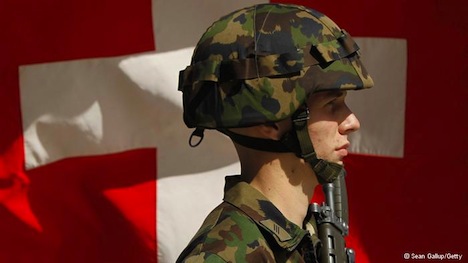After weeks of tension, Israeli prime minister Benjamin Netanyahu sacked justice minister Tzipi Livni and finance minister Yair Lapid on Tuesday, accusing them of trying to lead a ‘putsch’ against him, and the Knesset (הכנסת), Israel’s unicameral parliament, has now voted to dissolve itself in advance of snap elections in early 2015.![]()
Just two years and two months after Israel’s last parliamentary election, Israel is set to go to the polls on March 17, two years sooner than the current parliamentary term ends. Despite Netanyahu’s bravado in triggering early elections, neither he nor Lapid nor Livni are assured of increasing their share of the vote.
While Netanyahu remains the favorite to return as prime minister as the head of his center-right Likud (הַלִּכּוּד), he will be vying to win a fourth term leading government after two of the toughest years of his political career. Though the election is likely to focus, increasingly, on domestic issues, it follows this summer’s ‘Operation Protective Edge’ against Hamas in the occupied Gaza strip that lessened global support for Israel. It also follows Arab-Jewish violence in Jerusalem in recent weeks, and after Sweden formally recognized Palestine’s sovereignty in October (as the French parliament voted on the issue earlier this week).
* * * * *
RELATED: Twelve lessons to draw from Netanyahu’s new Israeli cabinet government [March 2013]
* * * * *
Nevertheless, unless terrorism or religious violence increases, the Palestinian question will invariably fade from the agenda of the country’s leading politicians — for at least the next four months.
Accordingly, the election will be a referendum on Netanyahu’s leadership over the past two years, including the management of his coalition, the struggle of Israel’s middle class, and global matters like his handling of the Gaza war and testy relations with the United States and the Obama administration. Critics from both the left and right will target Netanyahu during the 2015 campaign. Moreover, if Netanyahu falls short next March, his position within Likud is even more tenuous after he wasted precious political capital attempting (and failing) to block former Knesset speaker Reuven Rivlin’s presidential candidacy.
With allies like these, who needs enemies?
The unwieldy coalition Netanyahu formed in 2013 has been increasingly unstable since the end of the military action in Gaza earlier this year. The causes lie not only among moderate critics to Netanyahu’s left like Livni and Lapid, but among conservative critics to his right, including his one-time chief of staff, economy minister Naftali Bennett and his nationalist foreign minister, Avigdor Lieberman. During the Gaza conflict, Netanyahu nearly fired Bennett after his strident criticism that Israel’s military action wasn’t going far enough. Continue reading Netanyahu sacks Lapid, Livni, seeks snap 2015 elections

